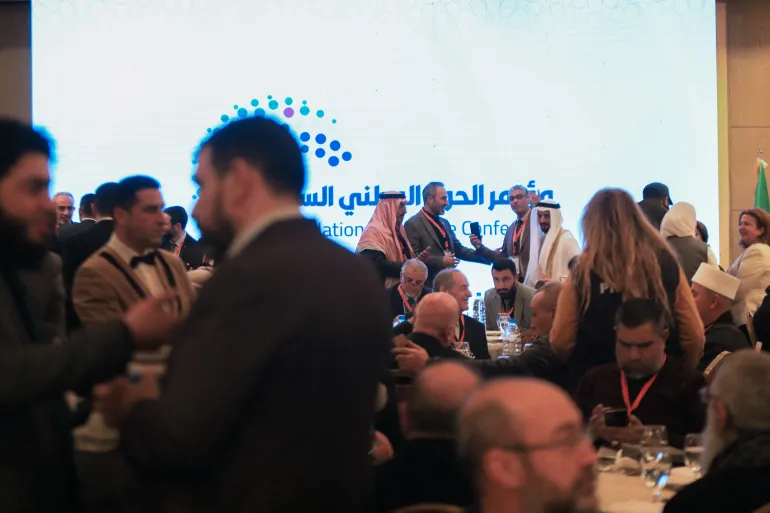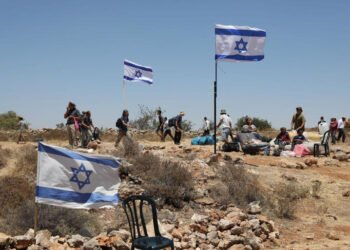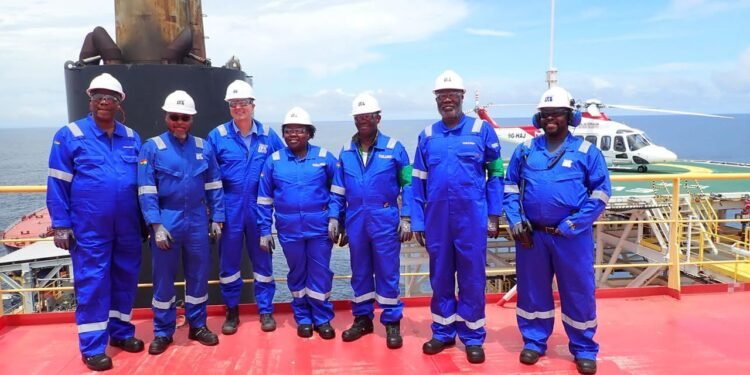The Israeli military has conducted air raids targeting what it described as military bases and command centres in southern Syria and outside the capital, Damascus.
Israeli warplanes hit the town of Kisweh, approximately 20km (12 miles) south of Damascus, as well as the southern province of Daraa.
The Israeli army said that it struck “military targets in southern Syria, including command centres and multiple sites containing weapons”, without specifying exact locations.
It also said that “the presence of military means and forces in the southern part of Syria pose a threat to the citizens of the State of Israel” and vowed “to operate in order to remove any threat.”
The Syrian Observatory for Human Rights, a UK-based monitor, said that at least two people were killed in the Israeli attacks.
The observatory said that Israeli aircraft carried out four strikes on a military unit’s headquarters southwest of Damascus. “Simultaneously, another Israeli strike hit a military position in Daraa province,” it noted.
According to the observatory, the strike in Daraa province hit Tell al-Hara, a strategic hilltop overlooking large areas of the Golan and northern Israel.
Israel’s Defence Minister, Israel Katz’s spokesperson said in a statement that the Air Force “is attacking strongly” in southern Syria as part of the new policy “we have defined of pacifying southern Syria – and the message is clear: we will not allow southern Syria to become southern Lebanon.”

The statement added that any attempt by the Syrian regime forces and the country’s “terrorist organisations” to establish themselves in the security zone in southern Syria will be “met with fire.”
Israeli Prime Minister, Benjamin Netanyahu said via telecast during the lobby group American Israel Public Affairs Committee Summit in Washington, “In Syria, IDF forces will remain on the summit of Mount Hermon … And in the adjacent buffer zone, we will remain for the foreseeable future.”
Referring to the Hay’at Tahrir Al-Sham insurgent coalition from northern Syria, he stated that Israel will not allow the presence of the HTS organization or a new Syrian army in the area south of Damascus, adding, “Southern Syria will be demilitarized.”
On Sunday, Prime Minister Benjamin Netanyahu called for the “demilitarisation” of southern Syria.
The bombardment came hours after Syria condemned Israel’s incursion into the country’s south and demanded it withdraw, according to the closing statement of a national dialogue summit.
The summit, organised by Syria’s new government, aimed to outline the country’s political roadmap after the toppling of President Bashar al-Assad in December.

Air Strikes Criticised
Palestinian group Hamas condemned the air strikes in the “strongest terms.”
It called the attacks “a blatant attack on Syrian sovereignty” and a continuation of Israel’s aggression against Arab nations.
Meanwhile, Qutaiba Idlbi, a resident senior fellow for Syria at the Atlantic Council, stated that Israel’s latest attacks complicate efforts by the new Syrian administration to reunite the country.
Idlbi noted that the attacks took place as Syrians held a national dialogue summit on the country’s political transition.
He added that the National Dialogue Conference has already been facing its own challenges in terms of coming together before a deal has been reached, especially with the Druze, the religious community in the south, and with the leadership of the Kurdish Syrian Democratic Forces in northeast Syria.
“The strikes on Damascus are only going to serve to delay such agreement, as the powers in northeast and southern Syria will feel more empowered to try to find a deal and perhaps some military support from actors outside Syria that would perhaps increase their leverage and power on the negotiating table with Damascus.”
Qutaiba Idlbi
Israel moved forces into a United Nations-monitored demilitarised zone within Syria after al-Assad’s removal, a move that violated the 1974 disengagement agreement with Syria.
READ ALSO: Strengthening Ghana’s Education System: The Need for Inclusive Dialogue






















